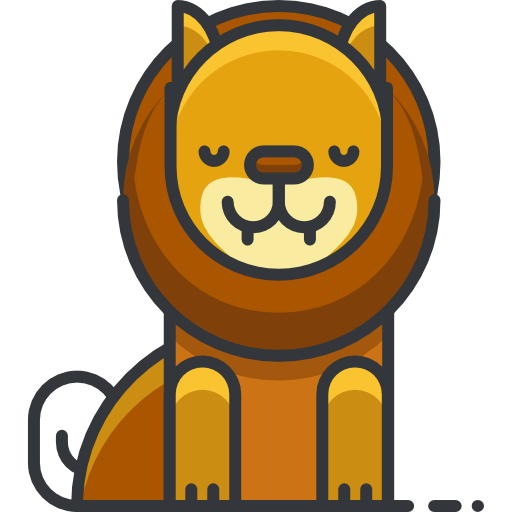HOW TO SUCCEED IN THE INTERVIEW FOR A CONSULTING ASSIGNMENT
An initial interview with the customer is inevitable. Even if you are going to work completely remotely, the client will want to meet you digitally. In short - succeeding in the interview is a must for a consultant and freelancer. So how do you make the consultant interview a success and a wonderful conversation that just flows completely naturally? I will tell you in this article.
Here is the same article in Swedish.
Interviews differ from company to company and from interviewer to interviewer. Depending on the role and assignment, it can also contain completely different parts and be of different lengths. On the one hand, for example, I only had a quick phone interview for one of my assignments. On the other hand, I know that some companies even have tests that you have to take and pass in order to move on to the interview as both an employee and a consultant. It can be both personality and knowledge tests as well as purely logical tests and so-called cases.
When it comes to consulting interviews (by consulting interview I mean when you, as a consultant, interview for an assignment with the client) compared to employment interviews, I can say in general that consulting interviews are often shorter and have fewer elements than employment interviews. The whole process is often much shorter. Job interviews can drag on for several weeks or even months and you have to meet several different people and/or the same person several times. Consultant interviews are usually only one step and one interview and it is common to receive feedback only a few days later or the same week.
During the interview itself, I would personally say that there is less "bullshit" during a consulting interview compared to a job interview. There is less talk and quite frankly less relevant with "cultural fit" and long-term ambitions. No one will ask "where do you see yourself in five years?" in a consultant interview. What is interesting is what, in concrete terms, needs to be done. I personally like it much better.
A classic consultant interview is carried out in the following way
-
The interviewer introduces themselves, the company and also the assignment in question.
-
Then you get to introduce yourself and give a brief background of your most recent professional experience.
-
Finally, you usually round off with questions.

Tips in order of priority with most important first
-
Have the attitude that the interview is not only for the company to evaluate you, but just as much for you to evaluate them. Be sure to answer the question "is this company and their culture, organization, role and mission really a good fit for me?".
-
Try to hold a conversation that flows naturally during the interview.
-
Summarize and double check that you have understood things correctly throughout the interview. Say: "if I try to summarize in my own words, I interpret it as the assignment means that X and the most important deliverables are Y, is that correct?".
-
Be interested, curious and ask counter-questions. Prepare 3-4 questions that you are really interested in beforehand.
-
Emphasize how interesting, exciting and fun the assignment seems. Don't be afraid to emphasize this several times. If there is a message you really want to convey and that the interviewer should walk away with, it is how incredibly eager you are to start working with them. This is usually where the chaff is separated from the wheat. The desire to get an assignment usually outweighs a perfect experience.
-
When you tell them about yourself and what you have done, it is important that you weave in your own relevant experiences for the role in question. They can be relevant from different perspectives. For example, you may have experience in the same industry, technology or a similar role, situation or organization.
-
Take notes. Bring your own notepad and pen.
-
Have the same attitude as if it were your first day on the job. That you are already working during the interview. Imagine that you are having a dialogue with an important stakeholder about what it is that needs to be done in concrete terms. What do you need to know to get started? That's what you should find out during the interview. This is a perfect opportunity to form an idea of where to start when you are there.
-
Don't be afraid to ask for clarification or to think for yourself before you answer.
-
Be prepared to talk about some of your hobbies. At the end, the interviewer usually wants to round off with something more relaxed and personal. Feel free to highlight some form of exercise as a hobby.
-
Being on time, knowing who you are going to meet, how they spell their name and preferably also how they pronounce their name goes without saying, but I mention it here anyway.
-
You should dress "business smart".
-
The interviewer will ask if you want coffee, tea or water. At least have a glass of water. Even if you don't feel like you need it right now, it's always good to have it if you get a dry throat, need an excuse to think before you answer, or just want to appear human and approachable.
-
Have a firm grip when shaking their hand.
-
Don't forget to smile!
-
Be aware of the signals you send out with your body language. Crossing your arms can be perceived as defensive, which you should of course avoid.
-
Something that I myself have encountered several times is bumping into the CEO, without being aware of it, and asking what he or she does at the company. It's always a bit embarrassing, so a tip might be to at least know what the CEO looks like and what his or her name is.
-
Put your mobile phone on silent and leave it in your bag. Do not pick it up or put it on the table during the interview.
-
Finally, I think you should email the interviewer after the interview the same day and emphasize that it was nice to meet you, that the assignment and the company are exciting, that you are more than happy to take on the role, and that you look forward to hearing from them shortly.
Examples of questions to ask
-
Don't forget to ask about the process:
-
What is the next step?
-
When will I be notified?
-
How many others do you interview?
-
When would you prefer to have someone in place to fill this role?
-
-
Ask macro-level questions to show your interest in the industry and the company at large:
-
I read *what's in the company's latest press release* and it made me wonder about X. How does it actually work?
-
I read *something that stood out from their last annual/quarterly report*. Is it true that Y and what consequences has it had for you in your daily work?
-
How are you affected by the *current economic situation*?
-
Just out of curiosity, who would you say are your main competitors?
-
-
Ask micro-level questions to establish a sense that you are already there and a good fit for the company, the organization, the team and the assignment:
-
What are the main challenges that you have right now in the team?
-
What do you think are the obstacles that stand, or could stand, in the way of us being able to deliver X? (note that you should say WE here - your attitude should be that you are already part of the team as the most natural thing in the whole world)
-
Can you describe your company culture?
-
What do I need to succeed in this role?
-
If you do all of this and follow this guide, I can't promise that you'll get the assignment, but you'll definitely increase your chances. If you miss any, you'll do okay too.Often, and ultimately, of course, it comes down to whether the interviewer thinks you would do a good job and whether or not they like you. Such assessment is subjective and do not take it personally if you would not get the assignment. There are usually many people fighting for them, so just keep searching!
Best of luck!
/Anna Leijon
My name is Anna Leijon and I have written several articles on the subjects of freelance, self-employment and tech. Feel free to read them too if you want - for example Frilansarguiden, CV-mall för konsulter och frilansare, Konsultmäklarlistan och Anställd vs frilanskonsult - en jämförelse i siffror. As a result, many people have contacted me and asked for tips before the consultant interview, among other things. That is why I have written this article. Feel free to post questions and feedback in my forum.


By subscribing, you will get notified when my next content is published before everyone else.